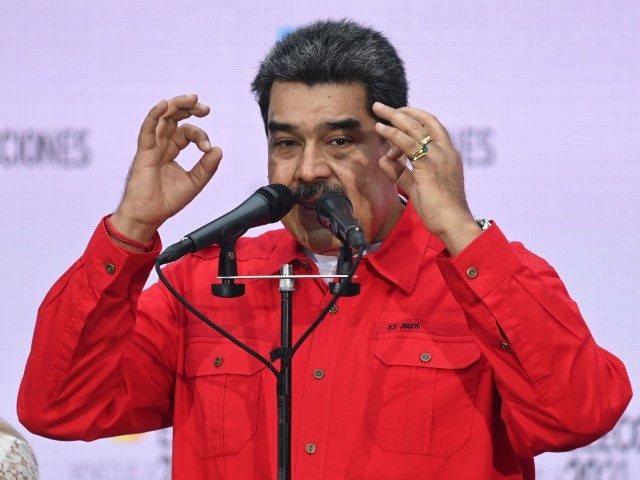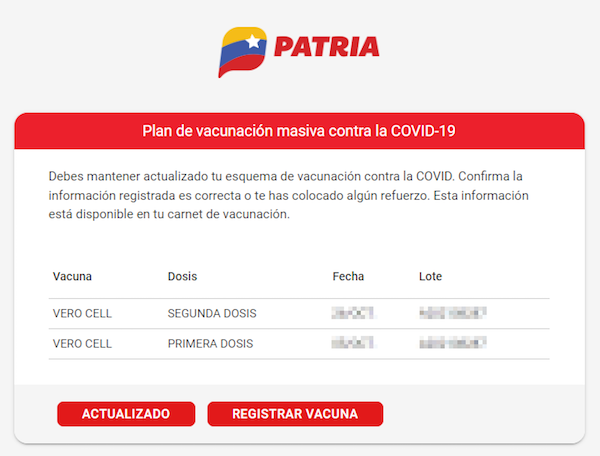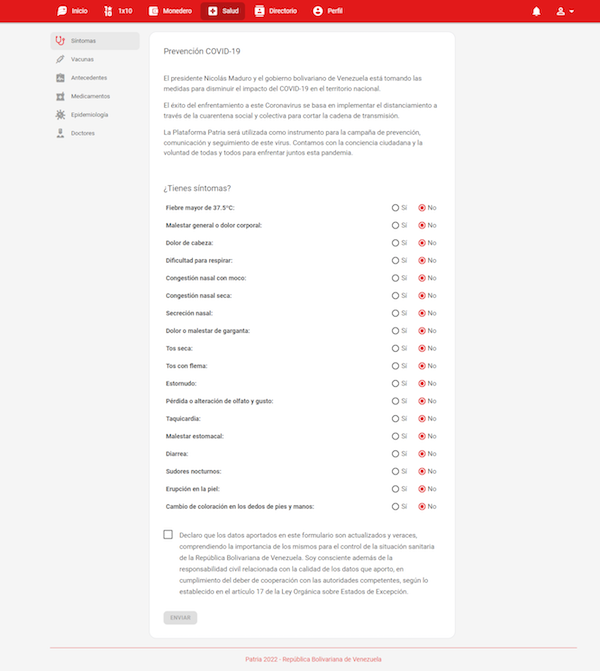CARACAS – The Chinese coronavirus pandemic is, for all intents and purposes, over in Venezuela — yet, while other countries in the region have lifted lockdowns and rescinded quarantine emergency decrees, the Venezuelan regime still maintains some of the coronavirus-related restrictions it imposed in March 2020.
In spite of that, things have settled down in Venezuela and the craziness that was the past two years of lockdown are a thing of the past, which has forced everyone to adjust to a new normal in 2022.
Gone are the Maduro regime’s fiercest coronavirus measures, such as the “7+7” intermittent quarantine scheme that made us go in and out through one week of fierce lockdown, followed by a less restrictive week – punished and shamed by the Bolivarian National Guard for breaking curfew. Gone is the ill-conceived digital vaccine passport system that the Maduro regime tried to implement in August 2021, only to have it fail almost immediately, given that it required electricity, a luxury in this country.
However, there are still some aspects of the quarantine that live on – far from being on the way out, they’ve become an ingrained part of our daily life in this socialist “utopia.”
Having gone through the rise of socialism, its inevitable collapse, and the new stagnant phase of Maduro’s rule, I’ve come to accept the fact that every new chapter of Venezuela’s journey towards socialism left us with new practices, customs, and colloquialisms as a sort of remnant from more turbulent times. The Chinese coronavirus pandemic is no different in that regard, and one of the things it left us with is the continued use of sanitary masks.
With the state of emergency still in effect, the use of masks is technically still mandatory all across the country. In reality, more and more people have started to forego them and it is now common to see people once more walking through the streets of Caracas not wearing them.
That said, the mandatory use of masks is something you still have to keep in mind if you need to enter a supermarket, grocery store, pharmacy, or essentially any commercial establishment. There are no ifs, ands, or buts that will do you any good — either wear one, or walk out empty-handed. Most places that still enforce masking have ditched social distancing, but in the case of supermarkets, for example, they will still check your temperature and spray your hands with sanitizer before entering.
If you yearn for the full experience of social distancing and masking, then you’re in luck: all you have to do is approach any Venezuelan public office. That is where you will still find the full package. Venezuelan public offices are already a bureaucratic nightmare, where I’ve seen people cry because they have been denied a document due to technicalities after waiting for months. Venezuelan public offices, plus social distancing mandates, are just plain worse and even inhumanely slower — take it from someone that spent most of the first half of 2022 going from one public office to another to gather documents that I needed to escape from socialist Venezuela.
Carvativir, Maduro’s “miracle droplets” that he once claimed will cure you of coronavirus, are not even mentioned by the regime anymore. The World Health Organization (W.H.O.) has not approved Maduro’s miracle droplets for the treatment of coronavirus. If you, for some reason, believe in the efficacy of the droplets, then you can still buy a small bottle for about $2.30. It is one of the few things consistently in stock in this country’s stores.
Vaccination is hardly on anyone’s mind these days as there are more pressing matters, such as making it through Venezuela’s dizzying inflation. The frenzy and chaos lived through during the first weeks of vaccination are but a distant memory and most vaccination centers have closed down by now.
Though Maduro claimed in February that “102 percent” of Venezuela had been vaccinated, according to the Pan-American Health Organization (PAHO, a regional subsidiary of the W.H.O.), only 49.8 percent opted to get “fully vaccinated” with two doses, and only 16 percent have opted to get a booster shot.
The only vaccines available come from Maduro’s allied rogue states, and your age determines what you get: China’s Sinopharm vaccine for most adults and Russia’s Sputnik-V for the elderly. There have been cases of Cuba’s “Soberana” vaccine product being distributed to children. One of the reasons some in the country opted to get vaccinated with Sinopharm is because it is the only one available in the country authorized by countries that demand proof of vaccination for entry.
Ironically – and unlike countries like Canada that still maintain a fierce ban on unvaccinated travelers – socialist Venezuela, despite being an authoritarian regime and all that, does not ban unvaccinated travelers. However, if you choose to travel to Venezuela for whatever reason, there is a new mandatory system you as a traveler must be in compliance with regardless of your vaccination status called “BioCheck.”
The BioCheck system is a brand new website the Maduro regime launched on August 1. Travelers who seek to enter Venezuela must register on the website prior to their arrival in the country by entering their personal information, vaccination status (or a negative PCR test if unvaccinated), and a selfie of the traveler while holding an identification document, such as a Venezuelan ID card or foreign passport.
A partir del 1 de agosto todo pasajero que ingrese al país vía aérea debe registrarse en el Sistema Automatizado Biocheck y generar de manera electrónica, sencilla y gratuita su "Pase Viajero de Bioseguridad", proceso de validación del esquema de vacunación contra el COVID-19. pic.twitter.com/DtoAYOSUoh
— Instituto Nacional de Aeronáutica Civil (INAC) (@InacVzla) July 20, 2022
Venezuela’s BioCheck system very much resembles a more rudimentary version of Canada’s ArriveCAN system.
The Maduro regime’s Chinese “social credit score”-inspired Fatherland Card system is still used to track vaccination status data and, without the failed digital vaccine passport, it is the closest Venezuela’s socialist regime currently has to one.
The Fatherland system, which recipients of Maduro’s handouts and stipends must use, periodically asks its users to self-report any new symptoms.
There is a delicate balance between not living in fear of coronavirus and being justifiably careful, as Venezuela lacks proper health care and, with 94.5 percent of Venezuelans living in poverty and 76.6 percent in extreme poverty, not everyone can afford medicine.
In the case of the building where I live, two elderly women and one elderly man sadly passed away due to coronavirus, and my adjoining neighbor had a close call recently. About a third of my neighbors have so far fled from the country, and an overwhelming majority of the remaining ones are elderly and are very paranoid about masking. Some of them will scold you if they happen to catch you without one.
All in all, Venezuelans have moved on from the pandemic and have kept going on with their lives, and that includes the inevitable outcome that many continue to reach for: fleeing from socialist Venezuela. The Venezuelan migrant crisis that had been temporarily forestalled by the pandemic has returned in full force.
Christian K. Caruzo is a Venezuelan writer and documents life under socialism. You can follow him on Twitter here.



COMMENTS
Please let us know if you're having issues with commenting.